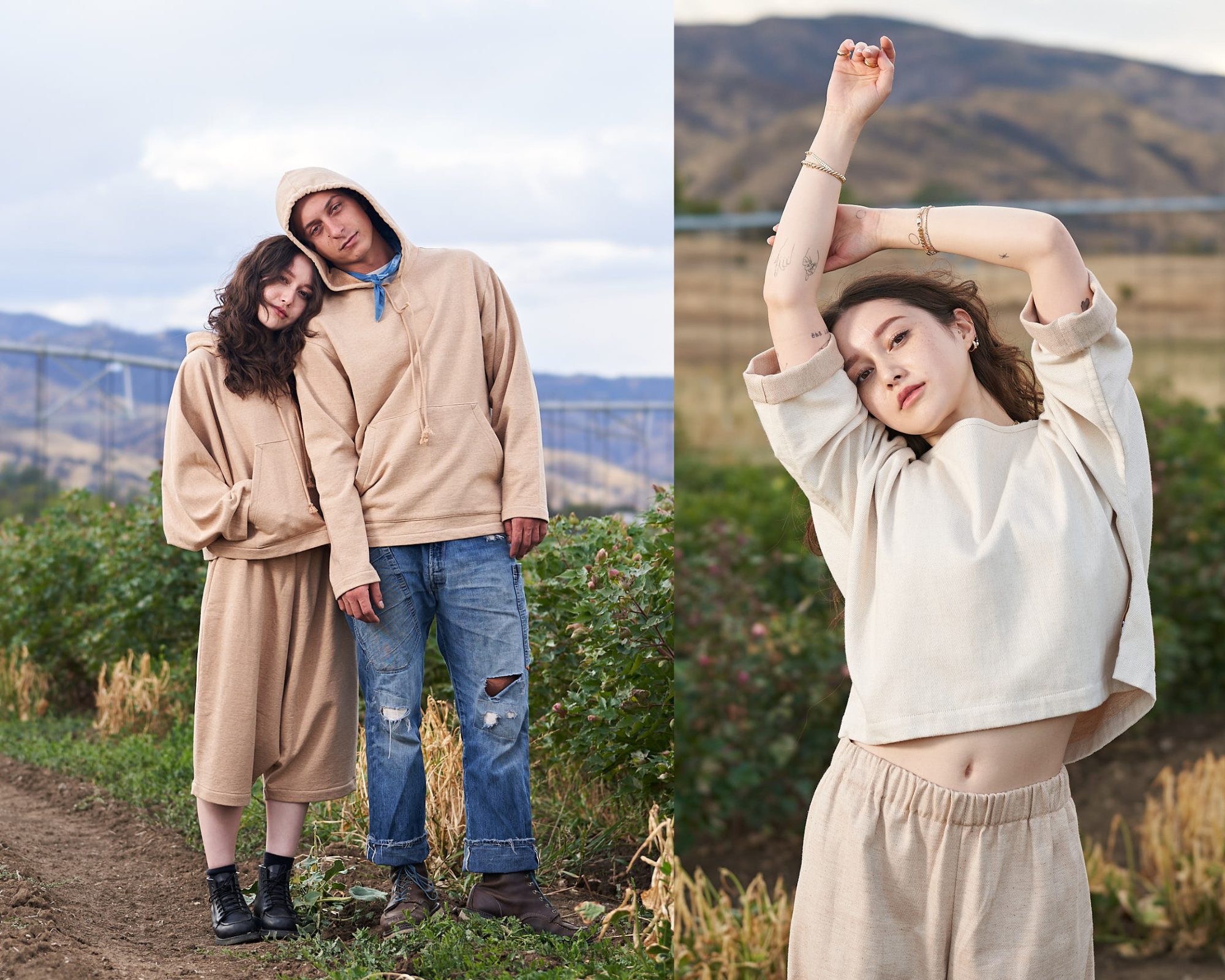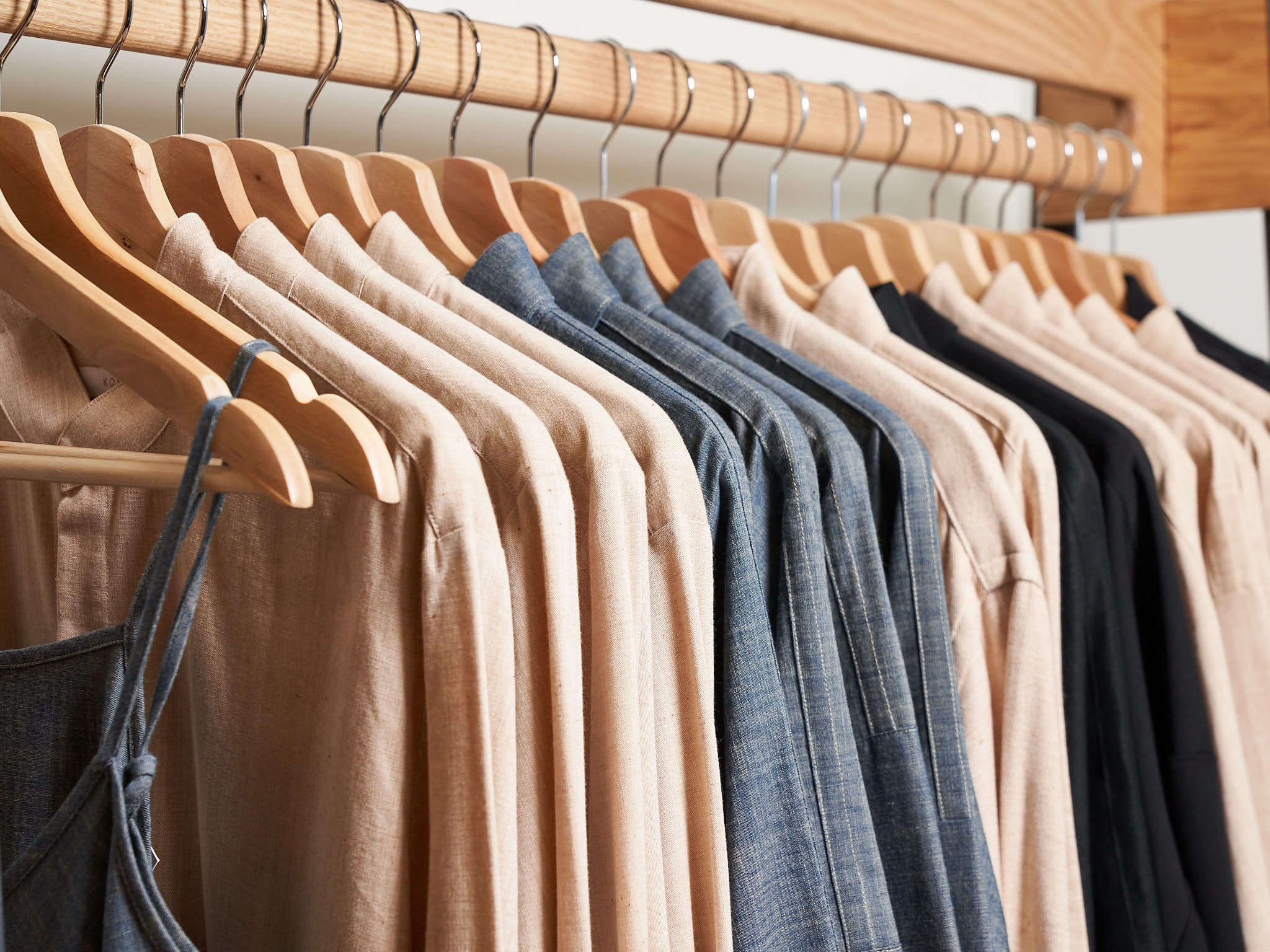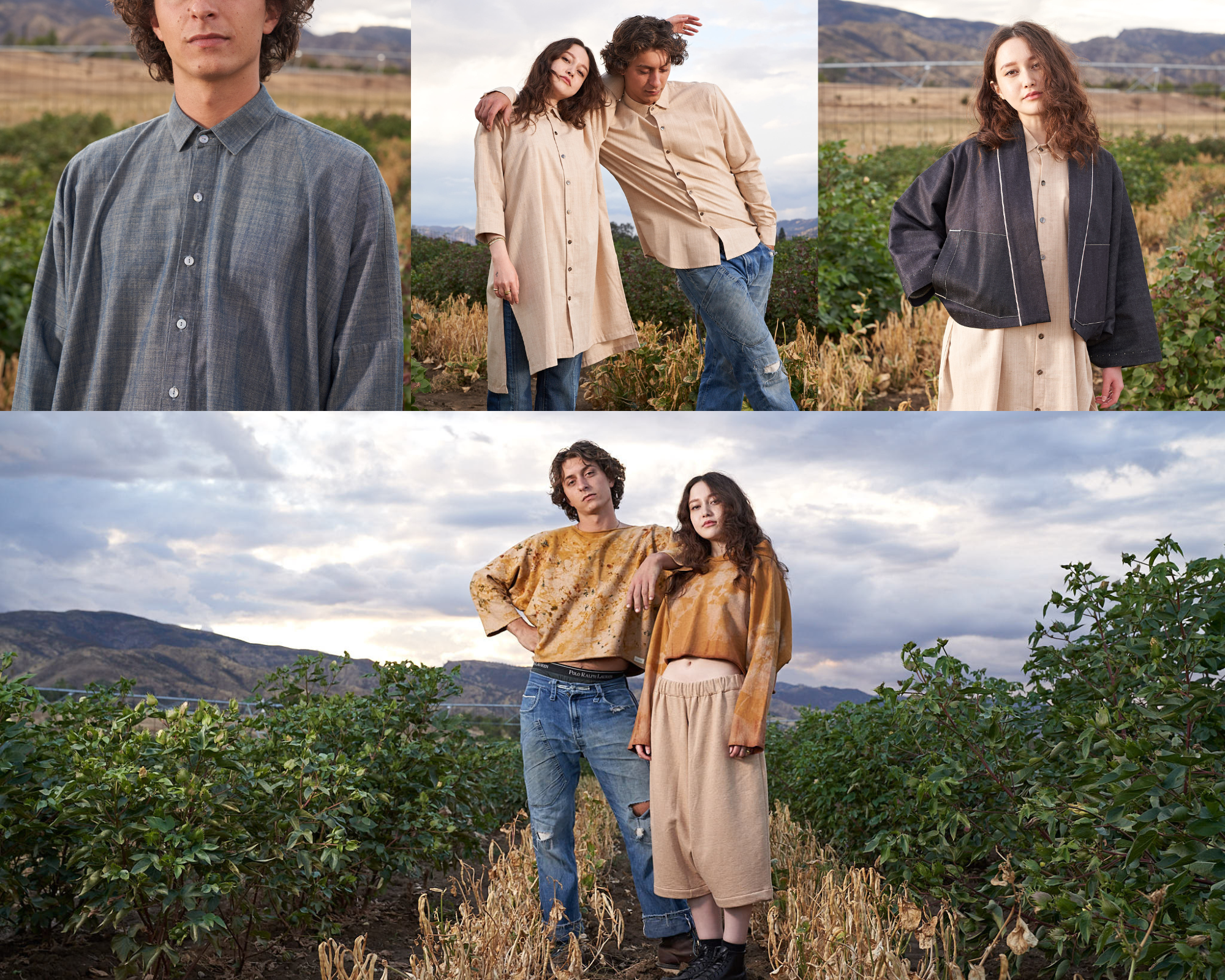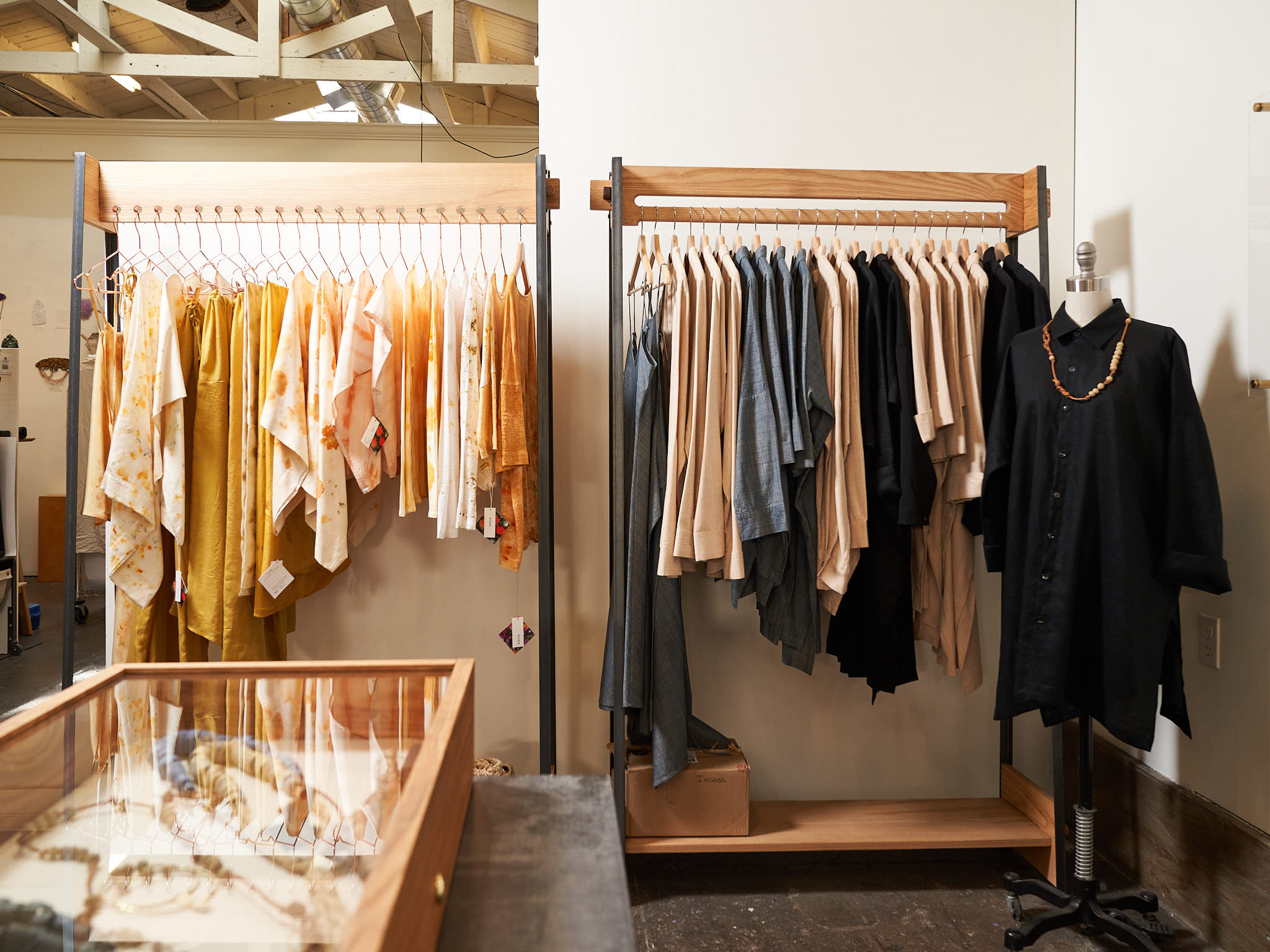
Written by Marie Hoff and photographed by Hubbard Jones
“Some say the creative life is in ideas, some say it is in doing… It is the love of something, having so much love for something – whether a person, a word, an image, an idea, the land, or humanity – that all that can be done with the overflow is to create.” – Clarissa Pinkola Estes
Elaine Hamblin — designer, pattern maker and sewer — lives at the threshold between land and garment. Her domain stretches from idea to functional item, connecting locally-grown fabrics with wearers in need of clothing. She often begins by solving for her own personal needs, and then sharing that solution as part of a collection of clothing available to the public. Her designs are based not on what is superficial and trending in the fashion industry, nor what will sell the quickest, but on what materials are available from local producers and deadstock natural fabrics, and how it can meet people’s real needs, balanced with her design aesthetics.

Elaine started sewing as a child, making dresses for her dolls. Her mother sent her to Singer Sewing Camp (“boot camp for sewing,” she calls it), which, though it taught her a lot at the time, delayed a deeper dive into clothing until after college. During college at CCA (California College of the Arts Elaine studied fine arts in many forms: sculpture, weaving, hand painting and printing on fabric, and natural dyes, among other things, which brought her back towards clothing. Later, as an assistant for Japanese-American designers, she developed an interest in Japanese clothing design that remains present in her work today, decades later. She began designing costumes, and often worked on costumes for Bay Area dance companies, especially aerial dance, whose dancers move through the air perpetually, often at high altitudes, displaying fabric at every angle.
“In trying to be creative, what I start with may seem ordinary and familiar, and then transform into something else, something unfamiliar,” she explains; it’s art-to-wear. But it’s not just about art. There are the systems that produce the art materials. There is the current mire of people and planet, and the exploitation of both that clothing must also address. For Elaine, “design can be something that initiates a conversation” about the impact of fashion and its current system of waste and exploitation. She seeks another way, often treading against the strong currents of fast fashion in the opposite direction. Her interests lie in offering truly sustainable garments, raising awareness about how materials are grown, and the meaningful livelihoods of garment workers.

“I say that ‘Why is it so expensive’ is not the question; the question is ‘why is that so cheap?’ Why are we paying less and destroying people’s lands and cultures? We’re in a culture where we love a bargain. That makes it hard to evolve into a culture that uses just enough and values people’s labor, not just a company’s bottom line,” she states firmly. Having seen firsthand what is sacrificed for a company’s bottom line, Elaine remains resolved to do things her own way. After spending nearly 20 years working in the corporate world for companies like Esprit, Gap, Levis, and Gymboree — which took her to other countries that manufacture clothing and develop sustainability measures — she began her own venture, Kosa Arts.
Started in 2014, Kosa Arts blends Elaine’s interests in clothing and interior design, producing apparel in small-batch quantities with great attention to sourcing, construction, and of course, design. For Elaine, sewing the full garment instead of relying on piecemeal mass production honors the craftsmanship that goes into constructing clothing, which necessarily values the garment worker doing the constructing. To create clothing that relates to the ecology of the place she lives, is to value the health of the environment and the health of the garment worker and the wearer themself.

“Sometimes you don’t know the difference until you work with the difference,” she notes, speaking of Sally Fox’s breathtaking heirloom and organic cotton fabrics. These fabrics “have life in them, the feel and the smell of them, the vibrancy of color,” and are classically-bred and naturally-grown. Comparatively, other gmo-cotton or synthetic fabrics feel lifeless. The process of making is important, of working with fabrics that are alive and healthy. Elaine’s clothes are not about the ‘just get it done’ mentality of manufacturing; they are a creative, and often revelatory, process: a process whose qualitative difference becomes evident when wearing them.
With a desire to relate more deeply to her natural landscape, Elaine’s love of design transforms materials from her local fibershed into useful, functional garments that take care of the wearer, the worker, and the planet. Her insights into process and the systems that clothe us shine a light toward a future of design that values life over the bottom-line.

To learn more about KOSA Arts visit www.kosaarts.com and follow @kosa_arts on Instagram.
You can also visit Elaine at Werkshack, a collective workspace and gallery open to the public on Saturdays 12-5p (481 25th Street, Oakland, CA, 94612), and on Sundays at the Temescal Farmers Market in Oakland.

—
KOSA Arts is a part of Fibershed’s Producer Network — a membership-based network of farmers, ranchers, designers, sewers, weavers, knitters, felters, spinners, mill owners and natural dyers living and working within 51 counties in the North and Central regions of California. To connect with regional producers and their work, check out our Producer Directory.
